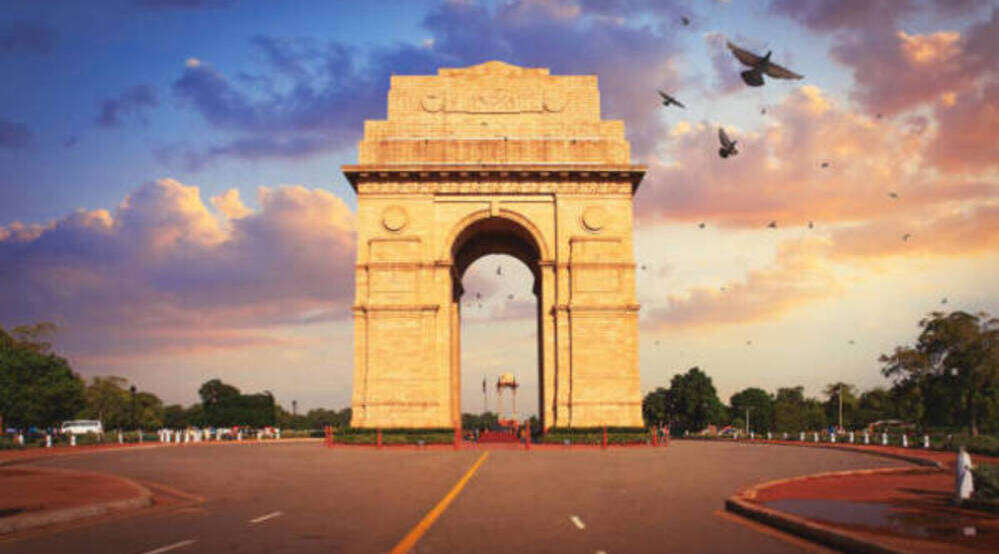Published on
August 16, 2025

India is witnessing a remarkable transformation in the way its people travel. Once dominated by elaborate, once-a-year holidays planned months in advance, the country’s tourism culture has shifted toward short, frequent escapes built around long weekends. This change is not accidental but the result of multiple forces coming together—improved air and road connectivity, the rise of budget airlines, hybrid work models that allow flexibility, and a growing appetite for authentic, immersive experiences. Today, travellers across India, from metro cities to smaller towns, see the long weekend not as an extra bonus but as a vital opportunity to recharge, explore, and create meaningful memories without waiting for the grand annual vacation.
For decades, Indian holidays followed a predictable rhythm. Families would block dates months in advance, saving annual leave for long summer breaks or festive season escapes that stretched for a week or more. Vacations were seen as grand occasions, once-a-year productions that demanded elaborate planning. Today, that mindset has shifted dramatically. The new generation of Indian travellers is rewriting the script, turning long weekends into the backbone of modern holidays.
The Rise of the Mini-Vacation Mindset
What was once considered a bonus has now become essential. Long weekends are no longer casual breaks but carefully curated journeys that carry purpose. Instead of waiting for one extended vacation, travellers are embracing frequent, shorter getaways that deliver depth without consuming too much time. This marks the rise of a “mini-vacation mindset,” where the focus is on maximising every opportunity to step away, even if only for a few days.
Several forces drive this cultural shift. Professional and personal commitments often leave little room for extended holidays, making compact escapes more practical. Improved air connectivity, budget carriers, upgraded highways, and faster trains have reduced both cost and travel time. The hybrid work model has further encouraged people to extend weekends by a day or two, combining leisure with light professional responsibilities. Added to this mix is the influence of social media, where travellers are motivated to pursue distinctive, visually engaging experiences that fit neatly into short itineraries.
From Checklist Tourism to Immersive Experiences
A defining feature of this movement is the transition away from checklist tourism. Travellers are no longer racing to squeeze multiple destinations into a single trip. Instead, they prefer slowing down, anchoring themselves in one location, and engaging deeply with its culture.
In Rajasthan, for example, many now choose three-day boutique stays in Udaipur or Jaisalmer rather than large circuit tours covering multiple cities. Their itineraries are filled with morning strolls through heritage quarters, boat rides at sunset, quiet conversations with artisans, and family-style meals rooted in heirloom recipes. These activities provide a sense of belonging rather than just observation. By focusing on depth instead of distance, long weekends allow even novice travellers to experience a destination with richness that once seemed reserved for extended holidays.
How the Travel Industry is Adapting
This transformation has pushed the travel industry to rethink its approach. Traditional week-long itineraries are giving way to short, concentrated experiences that can be customised on the go. Packages designed for two to four days now cover everything from culinary trails and heritage walks to wellness retreats and spontaneous adventure trips. The flexibility extends to hybrid travellers who blend business with leisure, taking advantage of strong digital infrastructure to stay connected while away.
Booking patterns have also changed. Travellers browse inspiration on social media, shortlist options on mobile apps, and finalise plans within days. The decision-making cycle has become faster, and expectations for quality and authenticity have grown sharper. Service providers now face the challenge of balancing instant availability with memorable, personalised experiences.
Beyond Metro Cities
One of the most striking aspects of this trend is its spread beyond major urban centres. Families and young groups from smaller towns, buoyed by better connectivity and rising disposable incomes, are adopting the long weekend lifestyle with equal enthusiasm. For them, these mini-escapes represent aspiration, opportunity, and quality time with loved ones. Short trips are no longer viewed as secondary to the “big vacation”; they are meaningful journeys in their own right.
A Modern Ritual of Escape
The long weekend has emerged as more than just a scheduling convenience; it has become a cultural ritual. Groups of friends mark calendars months in advance. Couples treat it as a chance to strengthen bonds. Solo travellers see it as a quick reset, a way to refresh the mind without a long absence from routine. Compact yet impactful, these getaways blend practicality with emotional significance.
Looking Ahead
If this momentum continues, India’s travel calendar will undergo a fundamental transformation. Instead of peaks concentrated around summer or festivals, the industry could see steady demand throughout the year, driven by rolling waves of micro-cations. This would not only reduce overcrowding during traditional peak months but also create more consistent opportunities for local economies.
India’s travel culture is shifting as long weekends replace traditional week-long vacations, driven by better connectivity, flexible work, and a desire for immersive short breaks.
For travellers, the message is clear. Adventure and discovery no longer depend on the annual grand holiday. The magic of travel lies in turning even a Friday-to-Monday break into something unforgettable. Every long weekend holds the potential to create memories, whether through a walk in a historic street, a sunrise trek, or a shared meal with strangers who become friends.
In this new era, travel is not about waiting for the perfect time. It is about recognising that every small window offers a chance to step away, recharge, and return with stories worth telling. The long weekend is no longer just a break; it has become India’s most powerful travel ritual.


